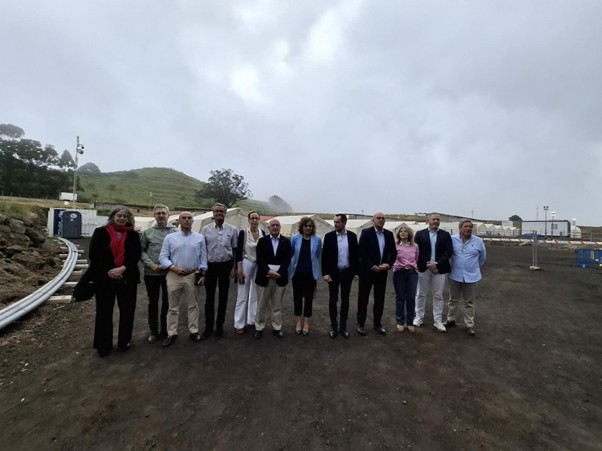MISSION OF THE COMMITTEE ON CIVIL LIBERTIES, JUSTICE AND HOME AFFAIRS TO THE CANARY ISLANDS

Between May 26 and 28, a delegation of Members of the European Parliament from the Committee on Civil Liberties, Justice and Home Affairs (LIBE), led by Chair Javier Zarzalejos, conducted an official mission to the Canary Islands focused on the management of migration flows, the state of reception systems, and cooperation with local and European authorities.
During the visit, the delegation held meetings with the President of the Canary Islands Government, Fernando Clavijo, and the Vice President and Minister of Economy, Industry, Trade, and the Self-Employed, Manuel Domínguez. They also met with the President of the High Court of Justice of the Canary Islands, as well as representatives of European agencies such as Frontex and various local authorities from El Hierro. In addition, they visited migrant reception centers on the island and other key facilities involved in managing the ongoing migration crisis affecting the region.
Javier Zarzalejos, MEP from the Partido Popular and Chair of the LIBE Committee, described the current situation in El Hierro as one of “tense calm,” noting a 35% decrease in boat arrivals compared to the previous year. However, he warned that the Atlantic route to the Canary Islands “remains the most significant and the deadliest in all of Europe.” “Fortunately, we are currently experiencing a few weeks of relative stability, but we must be realistic: the migration route remains open and is extremely dangerous for the migrants themselves,” he stated.
The LIBE Chair expressed gratitude for the solidarity of the people of El Hierro and praised the professionalism of all the teams managing the situation on the ground. He also pointed to “progress” in cooperation agreements with third countries, particularly in intercepting boats at their point of origin before they reach the islands.
Zarzalejos emphasized that we are at a “turning point” with the upcoming entry into force of the new European Union Pact on Migration and Asylum, expected in June 2026. This framework will bring significant changes in the management of external borders, asylum applications, returns, and the humanitarian responsibilities of Member States.
Spain, he noted, will be one of the main beneficiaries of the €3 billion EU fund intended to support the implementation of the Pact. This will also allow for the strengthening of the roles of key agencies such as Frontex, Europol, and the European Union Agency for Asylum.
Finally, Zarzalejos acknowledged the efforts of the Canary Islands authorities in hosting unaccompanied migrant minors and reiterated the need for effective cooperation between European institutions, the Spanish state, and regional governments: “Migration management is not just a matter of control, but also of shared responsibility.”
